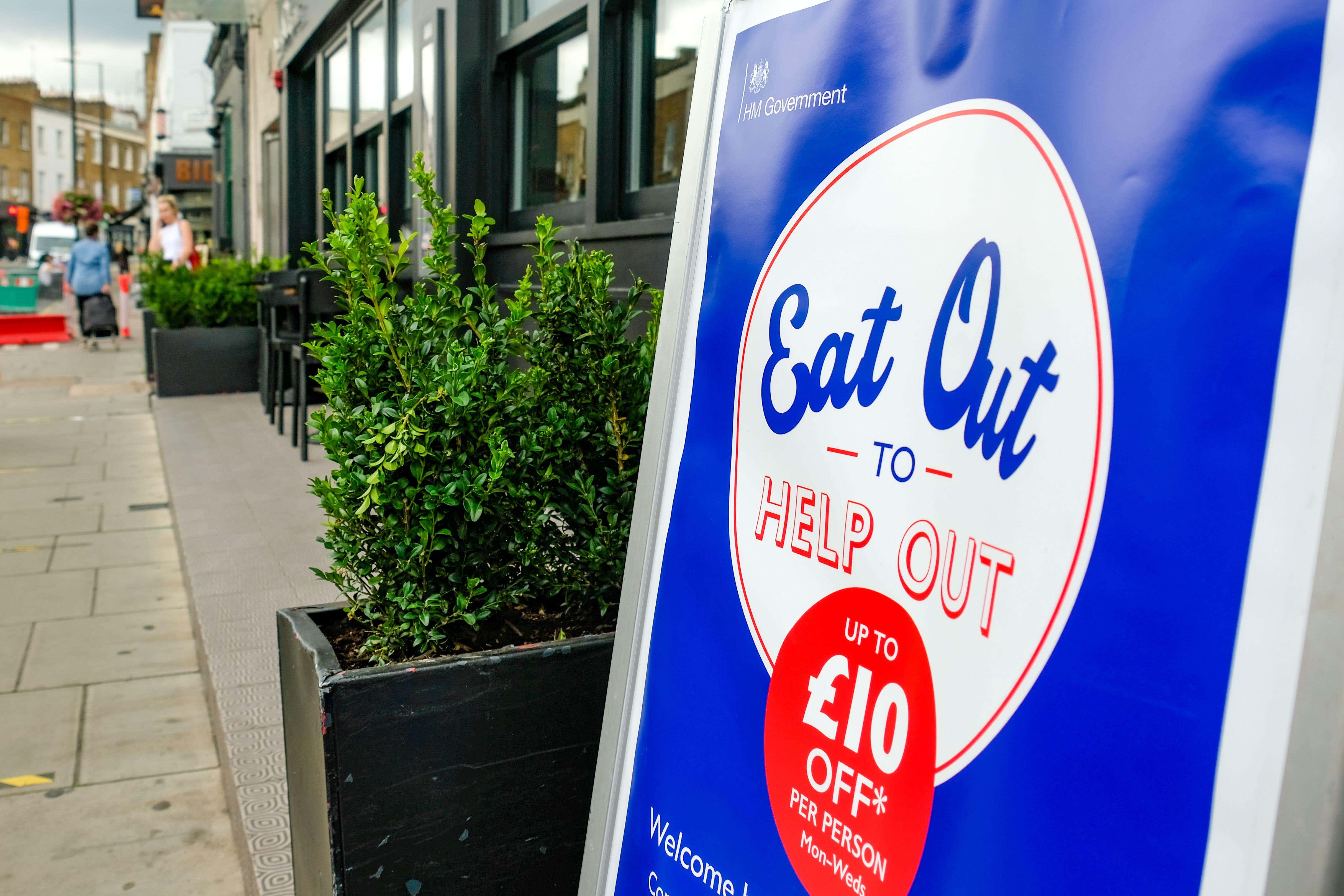Sunak’s Eat Out to Help Out scheme ‘confused the public’, Covid inquiry hears
A submission from the British Medical Association said the UK Government failed to ‘provide clear, consistent and visible public health messaging’.

Your support helps us to tell the story
From reproductive rights to climate change to Big Tech, The Independent is on the ground when the story is developing. Whether it's investigating the financials of Elon Musk's pro-Trump PAC or producing our latest documentary, 'The A Word', which shines a light on the American women fighting for reproductive rights, we know how important it is to parse out the facts from the messaging.
At such a critical moment in US history, we need reporters on the ground. Your donation allows us to keep sending journalists to speak to both sides of the story.
The Independent is trusted by Americans across the entire political spectrum. And unlike many other quality news outlets, we choose not to lock Americans out of our reporting and analysis with paywalls. We believe quality journalism should be available to everyone, paid for by those who can afford it.
Your support makes all the difference.Rishi Sunak’s Eat Out to Help Out scheme during the pandemic confused the public over what activities were safe, the UK Covid-19 Inquiry has heard.
A submission from the British Medical Association (BMA) said the UK Government failed to “provide clear, consistent and visible public health messaging” throughout the pandemic, including on working from home and socialising.
It added: “The Eat Out to Help Out initiative encouraged social mixing and confused public health messaging during 2020, suggesting that it was safe for people to socialise before vaccines were available and when the risks of Covid-19 remained high.
“And in 2020 alone, the Government campaign around working from home initially encouraged it, then required it, then encouraged it again, then strongly discouraged it, then encouraged it again and then required it again.
High-profile failures of MPs, senior advisers and civil servants to adhere to the rules fuelled mistrust and misinformation and further impacted the effectiveness of public health messaging
“This pattern continued throughout 2021 and into 2022. This lack of clarity and consistency undermines the public’s understanding of and confidence in core public health messaging.
“Further, high-profile failures of MPs, senior advisers and civil servants to adhere to the rules fuelled mistrust and misinformation and further impacted the effectiveness of public health messaging.”
The inquiry also heard that the BMA believes the Government’s response to the pandemic was “categorised by a failure to take a sufficiently precautionary approach and by missed opportunities to learn lessons as the pandemic progressed”.
The BMA’s submission said these failures placed healthcare workers at “greater risk of infection and death”, put extra pressure on “already stretched and stressed healthcare and public health systems” and “caused moral distress and injury for doctors and healthcare workers who felt unable to provide the right level of level of care, including for non-Covid patients”.
The Government’s actions to reduce the spread of Covid-19 were also “too slow”, with the failure to cancel mass gatherings and large sporting events in March 2020 leading “to higher cases, hospitalisations and very likely deaths”.
The BMA submission said the first UK-wide lockdown was also too late while “the mandating of face masks for the general public was also introduced far too late and much later than in many other countries”.
An earlier decision to abandon contact tracing in mid-March “likely fuelled the number of infections as well as deaths”, it added.